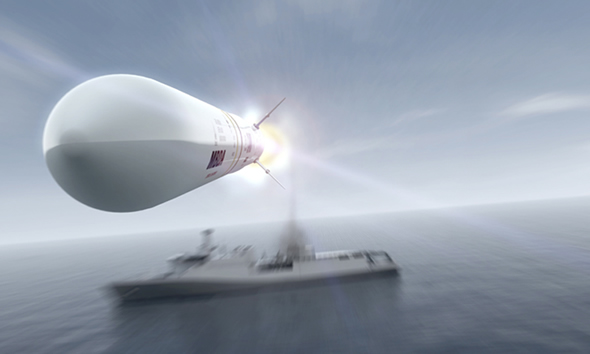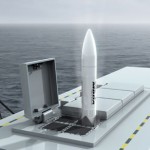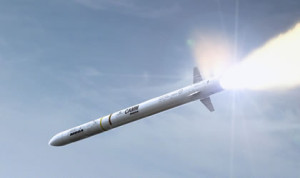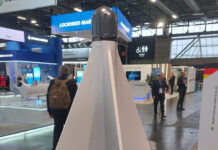

MBDA was awarded yesterday a £483 five-year MOD contract to develop Sea Ceptor – a new naval air defense system for the British Royal Navy Type 23 frigates. As part of the ‘Future Local Area Air Defence System’ (FLAADS), Sea Ceptor will replace the current Vertical Launch SeaWolf as it is scheduled phase out of service by 2016. Sea Ceptor will also become the principal air defense weapon on the Type 26 Global Combat Ship.
The heart of FLAADS-M is the Common Anti-Air Modular Missile (CAMM), capable of reaching speeds of up to Mach 3. It will have the ability to deal with multiple targets simultaneously, including supersonic anti-ship missiles, protecting an area of around 500 square miles (1,300 square km) over land or sea.
The new system relies on many technologies developed for the ‘Sea Viper’ missile system equipping the new Type 45T destroyers. MBDA has also tested the several elements of the system, including the new ‘soft vertical launch’ concept, missile datalink and RF seeker.

According to to MBDA, CAMM benefits from significant re-use of technology from other MBDA products, providing a missile with high maturity for this stage of development. For example, more than 75% of the Sea Viper C2 software will be reused for Sea Ceptor. Furthermore, according to the MOD announcement, the flexibility of the design means that it could in future be adapted for use by the Army and RAF.
SEA CEPTOR is the second major package of work launched under the Portfolio Management Agreement (PMA) signed between MBDA and the UK MoD in March 2010. Other ongoing programs include the short-range maritime attack weapon (FASGW-L) and standoff loitering attack weapons for the Royal Air Force and Army. Under this Agreement, MBDA has responsibility to lead the transformation of the UK’s Complex Weapons (CW) capability through the management of a portfolio of projects potentially worth up to £4 billion over 10 years.

















